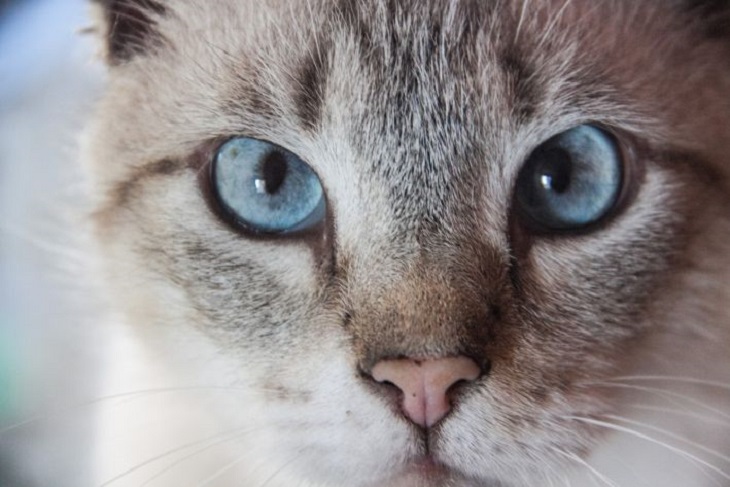With chronic stress in the animal's body, under the influence of constant psychological tension, changes occur in the structure of internal organs, which leads to serious diseases.
There are four factors that can trigger stress.
- Psychological. Causes emotional outbursts in the animal, leading to nervous system overstrain. Such outbursts are provoked by a stressful situation – a trip in transport, a visit to the veterinarian, the loss of the owner, a change of residence, etc.
- Biological. This category includes everything related to biological processes – starvation, overeating, thirst, infectious diseases.
- Chemical. This group includes exposure to chemicals – household chemicals, medicines, pesticides, tobacco smoke, etc.
- Physical. This includes heat, cold, climate change, burns, injuries, electric shock.
Often the problem resolves itself, but sometimes the animal cannot cope without the help of a veterinarian.
10 Signs of Stress
1. Refusal to eat or uncontrolled gluttony.
2. Increased anxiety. The animal is constantly tense, flinches at every sound, jumps at a slammed door, ears are constantly pressed back, and eyes are constantly watching the "enemy".

3. The animal is too thin, although it eats normally. This happens because too much energy is spent from constant tension.
4. Manic licking of fur. The animal licks itself so diligently that bald spots form on the fur. Sometimes the animal can injure itself to the point of bleeding.
5. Apathy. The cat does not react to what is happening, stops playing, stops being interested in the life of the family, even what used to make her happy becomes indifferent.
6. Excessive excitability. Instead of apathy, excessive excitability and hyperactivity may appear. This condition is best characterized by the expression "like a wind-up animal." The animal does not know peace, cannot sit or lie down quietly for a minute.
7. Meowing. Uncontrolled and unprovoked meowing is also an alarm bell, especially if the cat was previously calm.
8. Urinary incontinence, diarrhea. These symptoms can also be a response to severe stress.
9. Vomiting. Vomiting is a natural reaction of the body to various stress factors, from poisoning to severe psychological shock.
10. Impaired coordination, behavioral abnormalities. With prolonged stress, the animal's brain activity is disrupted, which affects its behavior. The cat may behave strangely, stagger from side to side, fall.
If your pet has one or more of the above signs that do not go away after some time, you should contact your veterinarian.








